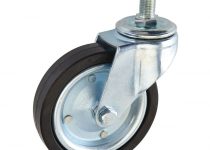The Insurance Duties You Have for Your Horse
Whether your horse competes or is just a beloved family pet, you likely want to safeguard him with insurance. But before you buy a policy, it’s important to understand what’s required of you as an insured. For example, most mortality policies require you to substantiate your horse’s value by providing purchase prices and competing records. You will also be asked to follow guidelines for euthanasia decisions.
Liability
When a horse is injured or becomes ill, it’s important to understand your coverage. It is a good idea to have an experienced agent that you trust to review your policy in detail and explain any words or phrases that may be unfamiliar. Generally speaking, you are responsible for reporting any medical events or incidents to the insurance company. In some instances, the insurance company may request documentation from your veterinarian; however, it is important to remember that your equine practitioner cannot attest to the insurability of a horse. Many reputable companies offer horse insurance policies that provide loss-of-use coverage when an injury or illness keeps a horse from performing at its normal level of performance. Additional coverage should be considered, especially if the horse is used for breeding or sports competitions. This coverage is generally available for an ad hoc event or as an endorsement of a liability policy.
Property Damage
While horses are usually gentle, they can still be a significant threat to people and property. A rider may fall off, injuring herself or someone else, or a horse might spook and damage a car. State equine liability laws might help limit your losses but cannot eliminate them. A homeowner’s or standard farm owner policy generally excludes coverage for commercial equine activities such as boarding, training, riding instruction and breeding. A liability policy can protect against claims arising from these activities, including defense costs and up to the chosen policy limits. Another important consideration is loss of use. This coverage reimburses you for the value of your horse if it is injured or dies in an accident, becomes ill or is destroyed by theft or natural causes and is no longer fit for its intended purpose, such as recreation or production. It is an important consideration for breeders, competition horses or other horses that generate income from participation.
Death
Mortality policies provide the most important insurance coverage for those who own more expensive horses. This type of policy pays a predetermined value for death or humane destruction (which can be determined by the owner) and covers theft. Mortality insurance can be written on an agreed or fair market value loss settlement basis. Many companies also offer a limited named perils coverage that is much more narrow in scope than a full mortality policy but costs less. An experienced equine insurance agent can guide you through the costs, exclusions and options available when choosing this coverage. Typical exclusions include elective surgeries, castration, genetic defects, rehabilitation treatments like shockwave and whirlpool therapy, alternative therapies such as acupuncture or chiropractic, necropsies and more that vary from company to company. Many people supplement their mortality policy with a major medical/surgical policy. These policies pay for various emergency and diagnostic procedures. They can even reimburse you for a percentage of the horse’s value if they become permanently unable to perform as they used to.
Additional Insureds
If you are a professional equestrian – meaning you perform a horse-related service for payment or barter (boarding, training, instruction, buying/selling, breeding, officiating, organizing or hosting shows and clinics) you should have an Equine Commercial General Liability (CGL) policy. This policy provides defense costs and pays claims up to the policy’s limits. It can include an Additional Insured for an extra fee. For private horse owners who operate a non-commercial equine operation (training, board, breed or show), we have an optional Care, Custody and Control coverage that can be added to the CGL policy. This policy protects you from lawsuits alleging that your horses caused property damage or bodily harm to third parties while on or off your property. Many stables require this coverage as a condition of boarding there. It can also be combined with an Umbrella/Excess Liability policy to provide higher liability coverage limits.


